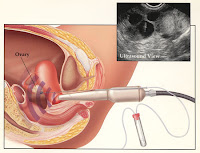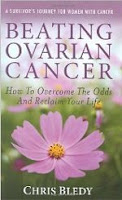In this post i'm gonna talk about "Is it okay for you to grab IVF after ovarian cancer treatment ?"
Let's learn about basic of IVF, first !
In vitro fertilisation (IVF) is a method to help some couples who can't gain pregnant normally, so they can get pregnant. This is a high-tech treatment where sperm and eggs are carried together in the laboratory.
Usually, women who have IVF treatment apply drugs or hormone injections to provoke their ovaries to make more eggs. This is known as ovarian stimulation. The women's eggs are then gathered to be fertilised in the laboratory.
Now. the problem is...
There has been some attention that IVF may increase the risk of matters in the ovaries, and especially the risk of ovarian cancer.
Many of the studies into the relation between IVF, ovarian stimulation, and ovarian cancer have compared women who have had IVF with women in the most population. But this ratio is not constantly the best one to make, as women who have trouble getting pregnant, or those who have never been pregnant, are more likely to have ovarian cancer. So comparing women who have fertility problems but do not have IVF treatment with woman who have IVF treatment would tell us more about the risks involved with this kind of treatment.
And the new study said...
There were 77 ovarian cancers recorded on the whole. 61 in women who had IVF treatment and 16 in women who hadn't.
When only those women for whom the researchers had at least ten years of information were included in the analysis, women with fertility problems who had IVF treatment were more than twice as likely to have an ovarian tumour as women who hadn't. They were also twice as likely to have borderline ovarian tumours, which are not usually fatal, but which naturally need surgery. The risk of invasive tumours – those that spread to healthy parts of the ovary – was not higher than would be expected by chance.
There was no additional risk of ovarian cancer for women who had repeated courses of IVF treatment compared with women who had just one treatment. Women who had been cured with fertility drugs before going on to have IVF treatment did not have a higher risk of a tumour than those who had not.
The researchers counted that for women who have IVF treatment, the overall risk of a tumour in the ovaries is small. Less than one woman in one hundred – 0.45 percent of women – will gain ovarian cancer by the time they reach the age of 55. If the results of this study are correct, this risk increases to 0.71 percent for women who have IVF treatment.
Is this research reliable ?
This is a big study and one of the first to compare how habitual ovarian cancer is in women with fertility problems who had IVF treatment and those who hadn't. But the size of the group of women who did not have IVF was quite small by ratio with the number of women who had IVF, and this may mean the ratio were less accurate.
The researchers took into account some of the factors that could have influenced the results, such as age, the cause of their fertility problems and if and how many children women already had.
This type of study cannot tell if IVF treatment leads ovarian cancer, and still unknown whether it's IVF treatment, or ovarian stimulation, that increases the risk of ovarian cancer. For one quarter of the women in the study, the researchers did not know what fertility drugs, if any, they had taken, and this could have led to errors when counting these risks.
So, is it okay for you to grab IVF after ovarian cancer treatment ?
There's still needed further studies to prove that IVF can increase your chance for getting ovarian cancer. So, if you wanna grab IVF after you've ovarian cancer treatment, please, discuss it with your doctor for more informations and suggestions.
Source:
>> besthealth.bmj.com
Image:
>> fwivf
All materials on this website is provided for your general information ONLY and may not be construed as medical advice or instruction. No action or inaction should be taken based solely on the contents of this information; instead, readers should consult appropriate health professionals on any matter relating to their health and well-being.
The information and opinions expressed here are collected from some related websites. But of course there're may some difference viewpoint, and i will try my best to offer you the good and relevant contents for you.
Let's learn about basic of IVF, first !
In vitro fertilisation (IVF) is a method to help some couples who can't gain pregnant normally, so they can get pregnant. This is a high-tech treatment where sperm and eggs are carried together in the laboratory.
Usually, women who have IVF treatment apply drugs or hormone injections to provoke their ovaries to make more eggs. This is known as ovarian stimulation. The women's eggs are then gathered to be fertilised in the laboratory.
Now. the problem is...
There has been some attention that IVF may increase the risk of matters in the ovaries, and especially the risk of ovarian cancer.
Many of the studies into the relation between IVF, ovarian stimulation, and ovarian cancer have compared women who have had IVF with women in the most population. But this ratio is not constantly the best one to make, as women who have trouble getting pregnant, or those who have never been pregnant, are more likely to have ovarian cancer. So comparing women who have fertility problems but do not have IVF treatment with woman who have IVF treatment would tell us more about the risks involved with this kind of treatment.
And the new study said...
There were 77 ovarian cancers recorded on the whole. 61 in women who had IVF treatment and 16 in women who hadn't.
When only those women for whom the researchers had at least ten years of information were included in the analysis, women with fertility problems who had IVF treatment were more than twice as likely to have an ovarian tumour as women who hadn't. They were also twice as likely to have borderline ovarian tumours, which are not usually fatal, but which naturally need surgery. The risk of invasive tumours – those that spread to healthy parts of the ovary – was not higher than would be expected by chance.
There was no additional risk of ovarian cancer for women who had repeated courses of IVF treatment compared with women who had just one treatment. Women who had been cured with fertility drugs before going on to have IVF treatment did not have a higher risk of a tumour than those who had not.
The researchers counted that for women who have IVF treatment, the overall risk of a tumour in the ovaries is small. Less than one woman in one hundred – 0.45 percent of women – will gain ovarian cancer by the time they reach the age of 55. If the results of this study are correct, this risk increases to 0.71 percent for women who have IVF treatment.
Is this research reliable ?
This is a big study and one of the first to compare how habitual ovarian cancer is in women with fertility problems who had IVF treatment and those who hadn't. But the size of the group of women who did not have IVF was quite small by ratio with the number of women who had IVF, and this may mean the ratio were less accurate.
The researchers took into account some of the factors that could have influenced the results, such as age, the cause of their fertility problems and if and how many children women already had.
This type of study cannot tell if IVF treatment leads ovarian cancer, and still unknown whether it's IVF treatment, or ovarian stimulation, that increases the risk of ovarian cancer. For one quarter of the women in the study, the researchers did not know what fertility drugs, if any, they had taken, and this could have led to errors when counting these risks.
So, is it okay for you to grab IVF after ovarian cancer treatment ?
There's still needed further studies to prove that IVF can increase your chance for getting ovarian cancer. So, if you wanna grab IVF after you've ovarian cancer treatment, please, discuss it with your doctor for more informations and suggestions.
Source:
>> besthealth.bmj.com
Image:
>> fwivf
All materials on this website is provided for your general information ONLY and may not be construed as medical advice or instruction. No action or inaction should be taken based solely on the contents of this information; instead, readers should consult appropriate health professionals on any matter relating to their health and well-being.
The information and opinions expressed here are collected from some related websites. But of course there're may some difference viewpoint, and i will try my best to offer you the good and relevant contents for you.

















.jpg)
.jpg)




